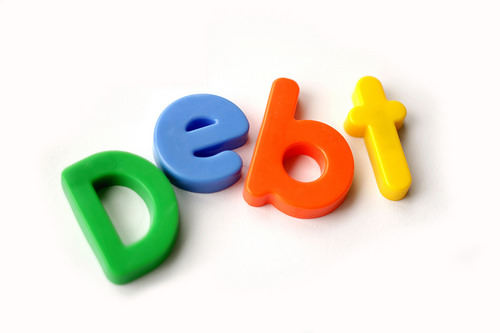I don’t think young adults really think about student debt until after graduation, when repayment rears its ugly head. I had no idea what I’d be tied to for the next 10 years of my life. I’ve officially made it halfway to the end, but it’s still something I think about all of the time. Life’s milestones are constant reminders of it – planning a wedding, buying a house, thinking of children – how do you manage all of those things while still digging your way out of student debt? While it feels incredibly overwhelming at times, I want to tell you that there’s a light at the end of the tunnel, and getting there isn’t as bad as you might think. I’ve made a few mistakes early on, but learning how to manage and pay off your loans in an effective way can make all the difference, saving you a little more money and reducing a lot more stress. Check out a few of the most common mistakes listed below, and keep them in mind during your journey to the finish line…
1. Putting student loans ahead of other high interest debt. I feel like my student debt is something that’s always looming over my head, with payoff dates still years down the road. Sometimes it’s hard to not want to just throw as much extra cash as I can at them to make them go away faster. For a while, I was guilty of doing just that while only making minimum monthly payments on my credit card, which had a higher interest rate. While I might owe more on some of my student loans, I was paying more in interest by NOT paying more on my credit card, and therefore spending more money every month. Instead, focus on getting rid of the debt that will cost you more in interest payments, and think of student loans as more of a marathon and not a sprint.
2. Paying off the smallest balance first. While it can feel incredibly rewarding to see a balance of $0 on your loan account, paying extra on your least expensive loan isn’t always the best idea. Instead, focus extra payments on your debt with the highest interest rate to avoid paying more over time.
3. Paying off federal loans before private ones. For me, this point ties in with the one mentioned above. As luck would have it, all of my most expensive loans are private, and they all come with higher interest baggage. It can be tempting to get rid of those smaller loans first, but again, it all comes back to interest and how much you’ll pay extra over your repayment term.
4. Paying off debt with debt. This was one of my least favorite “What-was-I-Thinking?” moments. I was so overwhelmed with the amount of debt I had after college that I immediate began paying as much as I possibly could on them, because 10 years seemed like an eternity at the time. Well what’s the problem with that, you ask? I was putting so much toward my loans, that I didn’t have anything left over for life’s other necessities (adequate groceries, clothing, haircuts, etc.) so I ended up charging all of those things to my credit card, racking up even more debt that I would need to pay off (with higher interest, to boot). Creating a monthly budget really helped me figure out how much I could actually afford to contribute without digging myself farther into a hole.
5. Switching your loans to income-based repayments. In some cases, this might be unavoidable, but I wouldn’t recommend this unless you absolutely had to. Reducing your monthly payment will save you a little extra money every month, but this will extend your length of repayment, adding on years of extra interest you’ll end up paying back. Instead, cut costs in other areas of your budget to meet your necessary monthly demands.
How are you tackling your debt? Have you found a plan that works well for you?

